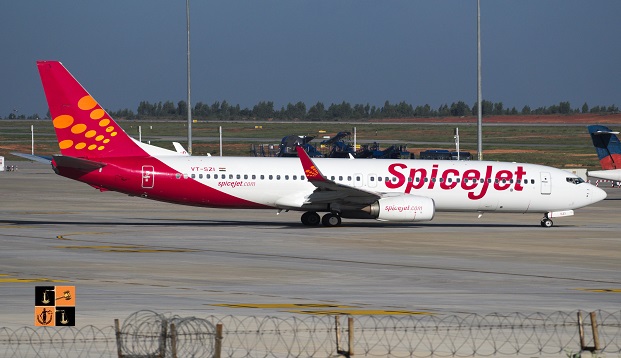Recently, the Supreme Court declined to interfere with the Delhi High Court’s decision directing SpiceJet to return three aircraft engines to their lessors following a default on payments. The bench, led by Chief Justice of India D.Y. Chandrachud, Justice J.B. Pardiwala and Justice Manoj Misra, heard SpiceJet’s Special Leave Petition (SLP) challenging the High Court’s September 11 order. The High Court’s division bench had upheld an earlier decision mandating the grounding and handover of the engines due to the airline’s failure to fulfill its financial obligations to its France-based lessors.
The dispute originated from an August 14, 2024, order by a single judge of the Delhi High Court, which directed SpiceJet to ground three engines and cease their use. SpiceJet was also instructed to return the engines to the lessors at its own cost. The order was in response to the airline’s non-payment of rental dues amounting to $4.8 million. The lessors sought specific performance of the agreement, which stipulated that SpiceJet would be required to ground the engines if it failed to meet its payment obligations.
A division bench of the High Court, comprising Justice Rajiv Shakdher and Justice Amit Bansal, upheld the single judge’s order, stating that the lessors were entitled to exercise their contractual rights. The court observed that SpiceJet’s continued use of the engines without payment was detrimental to the interests of the lessors, Team France and Sunbird France. The bench emphasized that if the lessors were prevented from reclaiming their engines, they risked losing both their assets and the unpaid dues.The High Court rejected SpiceJet’s argument challenging the jurisdiction of Indian courts to entertain such suits. It concluded that there was no legal barrier under Indian law to prevent the repossession and export of the engines. As a result, the appeal was dismissed, and the lessors were granted urgent interim relief.
The Supreme Court noted that SpiceJet had already paid $8.66 million, but there was still a shortfall of $2.67 million. The airline requested an extension until September 30 to settle the remaining amount. However, the court, referring to the interim agreement between the parties, emphasised that the consent order clearly outlined non-payment consequences. Chief Justice of India D.Y. Chandrachud remarked, “The consent order provides a consequence, you have not paid the full amount, and they are entitled to reclaim the engines”.
Despite SpiceJet’s counsel informing the court that negotiations were ongoing with the lessors, the bench refused to intervene, advising both parties to negotiate and return to the court for an update. However, the Chief Justice of India D.Y. Chandrachud reiterated that the High Court’s order was correct and dismissed the petition.
SpiceJet had argued that it would take a month to arrange for the return of two of the three engines, which were currently grounded, but the High Court had directed the return within 15 days. The Supreme Court dismissed the case without granting SpiceJet the liberty to approach the trial court for an extension on this deadline.


